- Home
- Blake Banner
Dying Breath (Cobra Book 2) Page 9
Dying Breath (Cobra Book 2) Read online
Page 9
“I don’t know whether to be worried or relieved. What were your motives?”
“You know Dr. Stuart Chen.”
“You ever heard of client confidentiality?”
“Are you a lawyer?”
“No, Mr. Patinkin. But do you know the difference between a lawyer and a high-class whore?”
“I’m hoping you’re going to tell me.”
She winked. “Lawyers are mainly men.” She sipped her drink. “There are only two things on this planet that are more expensive than a woman’s body.”
“You’re an endless source of fascinating facts, Rachida.”
“Do you want to know what they are? I think you should.”
“Hit me.”
“That’s extra.”
“Tell me, then.”
“Violence and information.” She set her glass on the bar and raised an eyebrow at me. “Right now, as far as you are concerned, I have a monopoly on two out of three. If you want either, you’re going to have to pay. Are you willing and able to pay, Mr. Patinkin?”
I nodded several times. “Oh yes. Yes, I am both willing and able.”
She grinned with lots of teeth. “We have client confidentiality, Guy, but, like lawyers, absolutely no loyalty. Show me your money, and ask me your questions.”
I studied her a moment while I sipped my drink. “Are we in a hurry?”
“I’m not. Are you?”
“Never. Time is all we have, it’s best spent wisely.”
It was a balmy night, freshened by a sea breeze touched by the silver light of a fat, translucent moon. We could have walked, and I would have enjoyed taking a detour to watch the dark green ocean with its luminous foam from the marina. But dressed the way she was dressed, looking the way she looked, I wasn’t about to risk letting her loose.
I had phoned ahead for them to hold a table in the gallery, and we took a cab. Our table was ready when we got there and we climbed the stairs to the galleried landing where our table was set overlooking the central patio. There was a lot of white linen and polished crystal, there were Moroccan wall lamps, chandeliers and potted palms, and the music was, unsurprisingly, big bands of the 1940s. I enjoyed it and Rachida fit right in with the décor—at least that was what most of the men at Rick’s Café seemed to think.
She ordered another Manhattan and I had a martini dry. We sipped in silence and studied the menu while Billie Holiday worried about that old devil called love. When the waiter returned Rachida ordered the escalope de foie gras pommes Lorraine, and I ordered a goats’ cheese salad with figs. For her main she ordered magret de canard avec chutney de fruits and I had the T-bone steak. The waiter recommended a bottle of ice cold white Muga for the foie gras and the goats’ cheese, and Marques de Riscal for the duck and the steak. I figured he probably knew what he was talking about.
The orders out of the way, we took a moment to stare at each other over our drinks to the sound of Ella saying she’d take Manhattan, the Bronx and Staten Island too.
“You’re an intelligent woman,” I said after a while. She didn’t look pleased. She looked pissed but made an effort to hide it.
“Am I supposed to be pleased that the great white warrior thinks I am smart?”
I went cold inside. “Warrior?”
“That’s what you focus on? I found your comment patronizing…”
“I was thinking aloud. And I’ll tell you what I was thinking in a moment. First explain to me why you called me a warrior.”
She gave her head a small shake and sighed. “We are the buffer here between the peace, abundance and complacency of the northwest, which starts at Gibraltar and Cadiz, and the madness and anarchy of Africa, which starts at the western Sahara. Our principal industry, in this desert, is tourism, because we do not impose Islam upon our visitors, and because we peddle a particular style of cheap, sexual tourism you don’t get in Miami and the Costa del Sol. So we get two main types of tourists here. The assholes from Spain who come to buy grifa and hashish, and the mercenaries from Africa who come north on leave to spend their hard-earned money on obedient, chocolate-skinned girls who will do just about anything for a dollar.”
“And that’s what you think I am?”
“I recognize a mercenary when I see one.”
“Clearly you don’t.” I smiled. “You recognize a soldier and you mistake him for a mercenary. I was in the Army, now I write articles for the New York Times, and, with a bit of luck, books.”
She wasn’t sure but opted for caution. “It makes no difference to me, Guy. You asked why I called you a warrior. I called you a warrior because I recognized a soldier.”
I drained my glass and set it down on the table. “Which confirms what I was thinking. When I said you were intelligent, I was not patronizing you. I was thinking that Amin and Mustafa, and Dr. Stuart Chen, all had you down as a dumb broad…”
“A what now…?”
“Archaic American English from about the time this movie was made…”
“I know what a dumb broad is, Guy. I’m just having trouble believing anybody still says that.”
“But you’re about as dumb as you are short, fat and ugly.”
“See, now that is not patronizing.”
“And you must have picked up a lot from hearing Stuart Chen and Ling Wei talk.”
“I don’t speak Chinese.”
“Don’t bullshit me, Rachida. I am sure they talk among themselves in Chinese, but to their clients they speak in English. And those were the times when you and Aicha would have been there.”
She nodded. “Yes.”
“And there must have been pillow talk, too.”
“Some.”
I smiled. “I want it all.”
“I am not a dumb broad, Guy. Nor am I a crazy dame. I am an intelligent professional, raised in the ghettos of Casablanca, forced into this profession at eleven years of age. I learnt the hard way how to take care of myself, and that the only person in the world who ever will take care of me, is me.”
“Is that where you learnt to speak perfect English, in the ghettos of Casablanca?”
The waiters arrived with an ice bucket and a bottle of white Muga, Rachida’s pate and my goats’ cheese salad. They went away and we started eating. As she spread foie gras on a small piece of toast she said, “No.”
I looked up and she went on.
“I learnt to speak English in England. I moved there when I was sixteen, with an English sugar daddy. That was the closest I ever came to loving a man, and I didn’t love him, believe me. But I liked him and I was grateful to him. He set me up in an apartment on Bayswater Road, near Notting Hill. He paid for me to learn to drive, he bought me a Mini, he paid for a couple of private tutors to teach me English and English literature, so that he could take me to fancy parties and I would not let him down. I was there for seven years. I returned to Casablanca…,” she thought for a moment, “about five or six years ago.”
“So why’d you come back?”
“He died. He had a stroke and died. He left me a few thousand pounds in his will.” She laughed. It was a beautiful sound. “I know what you’re thinking. I could have gone to university, got a degree, built up a career…”
“So?”
“Do you know how often I have sex?”
“You’d be surprised if I said yes, wouldn’t you? Of course not. I have no idea. Often?”
“About four times a year. That’s about all I need. And that is with men of my choice. I make a lot of money—and I do mean a lot of money—from keeping company and, above all, knowing how to listen. I choose my clients, and the clients I choose can no longer get it up. So, I do the same work as a psychoanalyst, with a fraction of the training and a fraction of the skill, with none of the professional responsibilities or restrictions, and for four or five times the fee.” She gave a small shrug. “The best of it is, I never had to go to college or train. So why the hell would I want to go to university in London, live in digs, share a fridge with
drunken, disgusting students, working my ass off to pass exams, when I could be dining at the Savoy and living in an apartment in one of the best neighborhoods in the city?”
“No reason, but you neatly avoided answering the question. What made you come back to Casablanca?”
She shrugged. “My clients pay London and New York prices, I pay Moroccan prices. I live like a queen. And that, by the way, is my point.”
“You expect me to pay London and New York prices for the information I want from you?”
She chewed and swallowed while watching me, then sipped cold white wine, still watching me. When she put down the glass she said, “That’s right.”
“So how much do you want for everything you learned about Dr. Stuart Chen and Ling Wei?”
She laughed again. “I still haven’t decided how much you’re willing to pay.”
“Well, that has to depend on how useful it is.” We ate in silence for a while. When I had finished I wiped my mouth and dropped the napkin beside my plate. “I’ll give you five grand. Tell me half. If it’s good I’ll want the other half, and I’ll pay you another five grand for it.”
She shook her head. “No.” She laughed, leaning back in her chair with her head thrown back. “No way. You know damned well I’ll save the best for last. Five for starters, and if what I give you is good, ten for the rest. You know that was what you expected to pay anyway.”
“How do I know the rest will be any good?”
She leaned forward and her eyes were intense, black coals. “How do I know you won’t kill me if it isn’t?” I didn’t say anything, and after a moment she went on. “Don’t think I can’t see it in your eyes. I have seen it before, and I am seeing it now. Fifteen grand is cheap at the price, but I am playing it safe, soldier.”
I nodded. “Done.” I reached in my pocket and pulled out my wallet. “I have two grand on me. Can we talk? Come back to the hotel with me after dinner and I’ll give you the rest.”
She shook her head again and smiled. “Give me everything when we get to the hotel. I believe you. What do you want to know?”
I put my wallet away and thought a moment while the waiters came and took away our plates and glasses, and replaced them with Rachida’s duck and my T-bone. The wine waiter gave me a glass to taste, I acted like I knew what I was doing, he poured the wine and left us. I watched Rachida poke some duck in her mouth and asked her:
“What was Dr. Stuart Chen shipping in his trucks?”
She took a deep breath and let it out through her nose.
“I’m going to give you an answer you don’t want to hear. Then I’m going to tell you something more.” She sipped her wine and carefully set down the glass like it made a difference where she put it. “I don’t know what he’s shipping. They never discussed that in front of me. Any time they talked about what it was, they talked in Chinese.”
“That’s the part I wasn’t going to like, right?”
I poked a piece of beef in my mouth and chewed, watching her.
“Yeah, but I can tell you that each shipment went to a different place, and that each one progressed south…”
I frowned. “What does that mean?”
“The first went across Mauritania to Senegal. The next, a few months later, went, again across Mauritania, to Cote d’Ivoire. A year later it went via Algeria to Cameroon, and three months after that to the Congo…”
“So each shipment went a little farther south.”
“That’s right. Now, the thing is, a lot of the girls I have worked with in the past, and many of the girls I know now, come from these very remote countries, and a couple of them began to compare notes and they noticed a pattern. Wherever Dr. Chen sent a shipment, within a month or two there was some kind of outbreak in a remote area, barely reported in the press, and several hundred people died.” She shrugged. “At first I put it down to paranoia and a Third World predisposition to explain away all their ills with conspiracy theories. But eventually I saw that it was true. Wherever the shipment went, there was some kind of outbreak.”
I scratched my chin. “Amin said he didn’t know the final destinations of the shipments. How come you didn’t tell him?”
“I keep Amin sweet because he can be useful. But he doesn’t pay, so he gets the sweepings.”
“Right.” I cut into the meat, watched the blood ooze onto the plate and mix with the oil, and put another slice in my mouth. It was tender and succulent. “So your reading was that he was using these remote, impoverished countries as a kind of real-world lab.”
She shrugged. “I didn’t intellectualize it that much, Guy. But I guess you could put it that way.”
“So, if that’s right, the chemicals he was experimenting with must have come from Morocco.”
“You’re asking me to speculate.” She said it with her mouth full, talking around the food.
“No.” I shook my head. “I’m asking you if you ever heard him talk about a factory, a lab, any kind of facility of that sort in Morocco.”
She thought for a long time, then shook her head, pulling down the corners of her mouth. “No.”
“You’re lying.”
“I am? How so?”
She didn’t look fazed but she wouldn’t meet my eye. I smiled.
“It was a trick question, Rachida, and there will be more. I happen to know for a fact that he did talk about the place where they manufactured the stuff. And now I am real curious about why you didn’t want to tell me about it.”
She laid down her knife and fork. “Does this mean I don’t get paid?”
“I’m undecided. It all depends on how you respond to this first embarrassing situation. What are you going to do? Are you going to redeem yourself, or dig yourself deeper into the hole?”
“Who are you, Mr. Patinkin?”
“I told you, I’m a writer. I also told you I used to be in the Army. Maybe you assumed I was some kind of grunt, but I never told you what regiment I was in, or what rank I attained.”
“You’re a writer…”
“An investigative journalist. I’m writing a piece for the New York Times, but that’s just a cover. What I am really working on is an exposé of Chinese-sponsored criminals like Stuart Chen.”
“And here and there you plant a question to which you already know the answer, to see if I am lying to you.”
I leered at her as I pushed a chunk of meat into my mouth.
“I’ve conducted a few interrogations on characters a lot tougher than you.”
“Is that what this is, an interrogation?”
“Would I have to pay extra for that?”
She shook her head. She wasn’t smiling. “I don’t play that kind of game.”
I drained my glass, then refilled hers and mine.
“I suggest you stop playing any kind of game, Rachida. I made you a generous offer, which you accepted. Quit trying to play me and give me the goods I’m paying for. You’ve got yourself into a very dangerous game, and believe me, you are much better off having me on your side than against you.”
“Is that a threat?”
“Yes. Now quit stalling and answer my question. What did he say about the lab or factory here in Morocco?”
She pushed her duck around with her fork for a bit, then flopped back in her chair.
“I heard him talk to several people about a plant in the desert, just north of a town called Lamharra. Access was via the A7, but then you had to turn east into the desert, at Ben Guerir. As far as its location goes, that is the best I can do. As to what they were making there, they always spoke about a vaccine.”
“A vaccine against what?”
“A plague.”
“A plague? What kind of plague?”
She shrugged and shook her head. “One that he was convinced was coming.”
Chapter Eleven
We’d finished the main course, and the last of the Marques de Riscal with a plate of goats’ cheese. Now she was holding a large balloon of cognac and I was sipping
a glass of The Macallan and trying not to think about how good she looked by lamplight.
“You said they had clients who used to come and see them. Where was that? Did they stay at an apartment? How come you spent so much time with them?”
“Dr. Chen and Dr. Wei have always rented a suite at the Casa Diamond. When they were in town they always called me and Aicha. Sometimes they called a couple of other girls too. They’d be in town for a week, maybe ten days, and we would stay with them for that period. They pay serious money.”
“And their clients would come to the suite to see them?”
“Mostly, yes. Sometimes they’d go out to the plant.”
“But you never accompanied them there?”
“Is that a trick question, Guy? I already told you I don’t know exactly where it is.”
“Can you remember the names of any of these guys? Were they only ever men?”
She thought for a while, with her bottom lip stuck out.
“Yeah, there was a woman, about a year ago, blonde, well-dressed, smart. She didn’t look Jewish, not the stereotype, but she had a Jewish name…Goldberg? It wasn’t Cohen or a ‘stein’ name.”
“Goldbloom.”
She nodded, “Yeah, Goldbloom. That’s right, and the guy was elegant, a gentleman, also smart, but serious and reserved. His name was Browne. He wined them and dined them for a week, and one day they went to the plant.”
“There was no third guy with them?”
“No.” She shook her head again. “More recently there was a group from the European Commission, or a department of the European Commission…” She paused to think, looking up at the ceiling. “The European External Action Service. There were four of them: Padraig O’Hanlon, Hans Grinder, Ruud van Dreiver and Michelle des Jardins.”
“You have a good memory.”
“No. For people who might be useful, I have an exceptional memory.”
“And you thought these people might be useful?”
“People who are rich, or wield a lot of power, are always useful, Guy. You know that.”
“So when will Stuart Chen be back in town?”

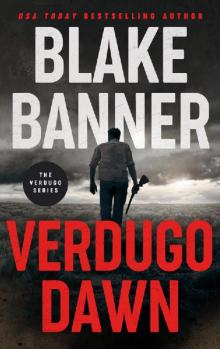 Verdugo Dawn
Verdugo Dawn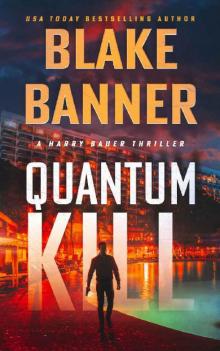 Quantum Kill (Cobra Book 4)
Quantum Kill (Cobra Book 4)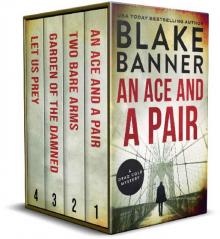 Dead Cold Mysteries Box Set #1: Books 1-4 (A Dead Cold Box Set)
Dead Cold Mysteries Box Set #1: Books 1-4 (A Dead Cold Box Set)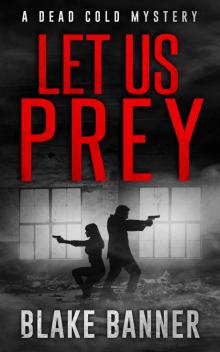 Let Us Prey
Let Us Prey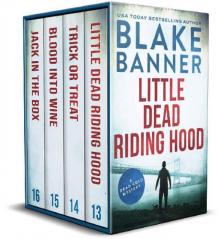 Dead Cold Mysteries Box Set #4: Books 13-16 (A Dead Cold Box Set)
Dead Cold Mysteries Box Set #4: Books 13-16 (A Dead Cold Box Set)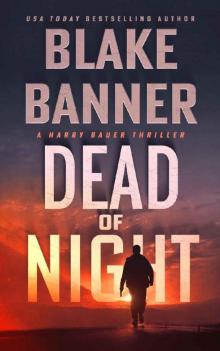 Dead of Night
Dead of Night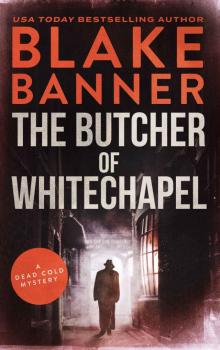 The Butcher of Whitechapel: Dead Cold Mystery 12
The Butcher of Whitechapel: Dead Cold Mystery 12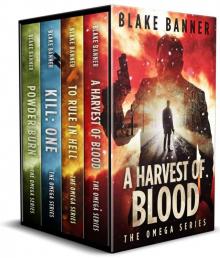 Omega Series Box Set 2
Omega Series Box Set 2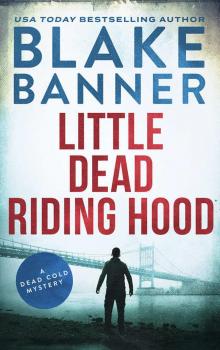 Little Dead Riding Hood: Dead Cold Mystery 13
Little Dead Riding Hood: Dead Cold Mystery 13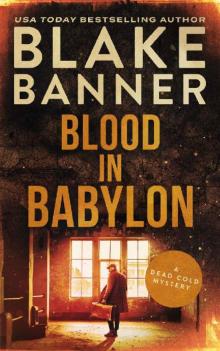 Blood in Babylon
Blood in Babylon Powder Burn
Powder Burn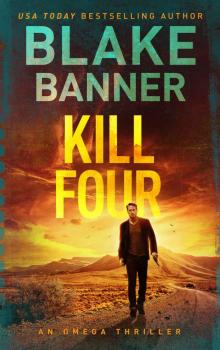 Kill Four
Kill Four Omega Series Box Set 3
Omega Series Box Set 3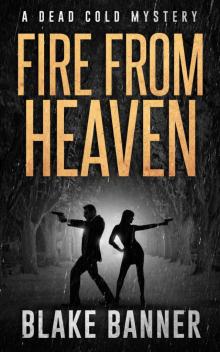 Fire From Heaven: Dead Cold Mystery 9
Fire From Heaven: Dead Cold Mystery 9 Kill - Two
Kill - Two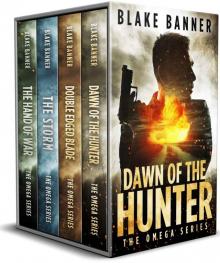 Omega Series Box Set 1
Omega Series Box Set 1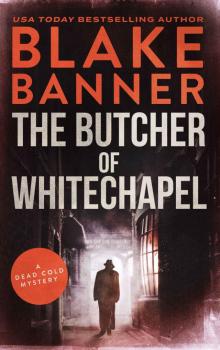 The Butcher of Whitechapel
The Butcher of Whitechapel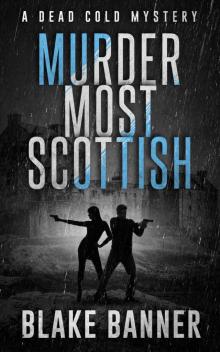 Murder Most Scottish
Murder Most Scottish Dead Cold Mystery Box Set 3
Dead Cold Mystery Box Set 3 Dead Cold Mysteries Books 5-8
Dead Cold Mysteries Books 5-8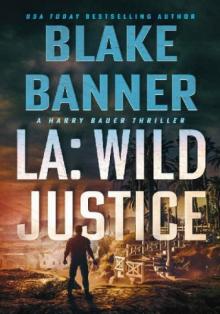 LA
LA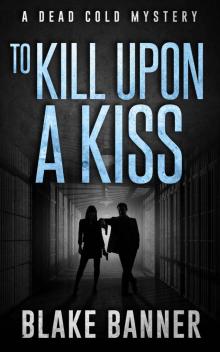 To Kill Upon A Kiss: Dead Cold Mystery 10
To Kill Upon A Kiss: Dead Cold Mystery 10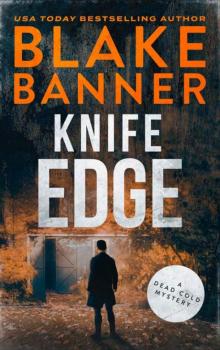 Knife Edge (A Dead Cold Mystery Book 27)
Knife Edge (A Dead Cold Mystery Book 27)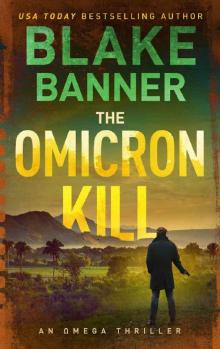 The Omicron Kill - An Omega Thriller (Omega Series Book 11)
The Omicron Kill - An Omega Thriller (Omega Series Book 11)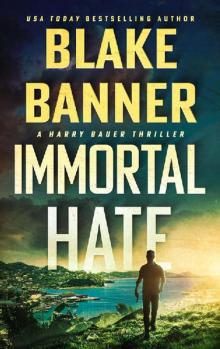 Immortal Hate (Harry Bauer Book 5)
Immortal Hate (Harry Bauer Book 5)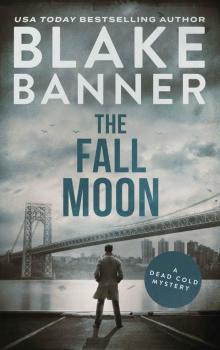 The Fall Moon
The Fall Moon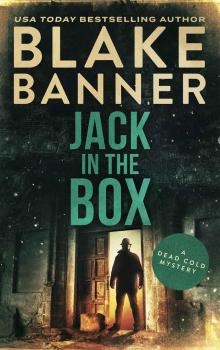 Jack in the Box
Jack in the Box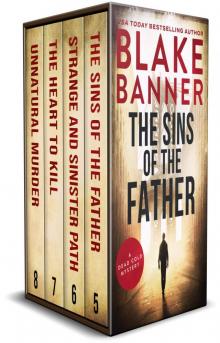 Dead Cold Mystery Box Set 2
Dead Cold Mystery Box Set 2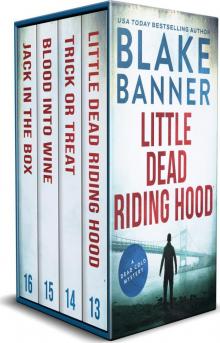 Dead Cold Mystery Box Set 4
Dead Cold Mystery Box Set 4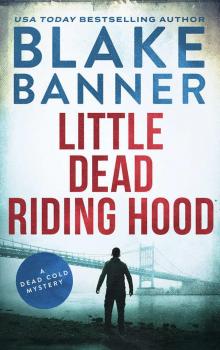 Little Dead Riding Hood
Little Dead Riding Hood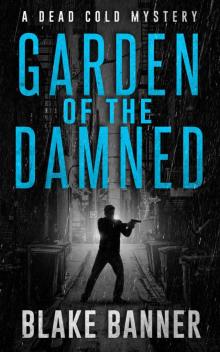 Gardened of the Damned
Gardened of the Damned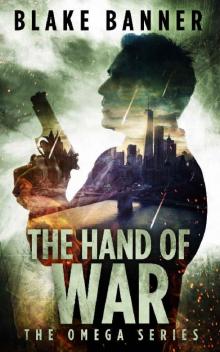 The Hand of War
The Hand of War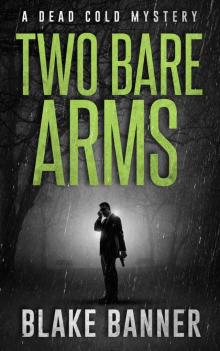 Two Bare Arms
Two Bare Arms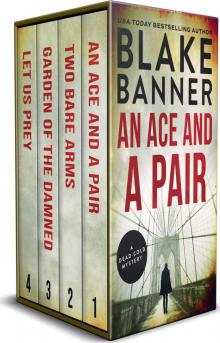 Dead Cold Mystery Box Set 1
Dead Cold Mystery Box Set 1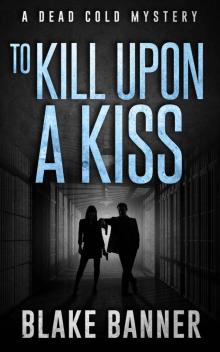 To Kill Upon A Kiss
To Kill Upon A Kiss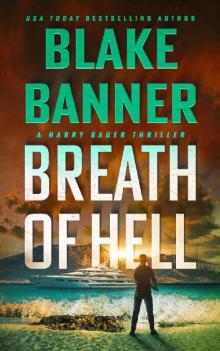 Breath of Hell (Harry Bauer Book 8)
Breath of Hell (Harry Bauer Book 8)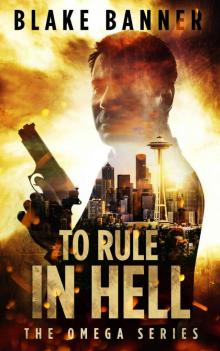 To Rule in Hell
To Rule in Hell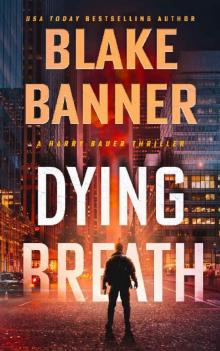 Dying Breath (Cobra Book 2)
Dying Breath (Cobra Book 2)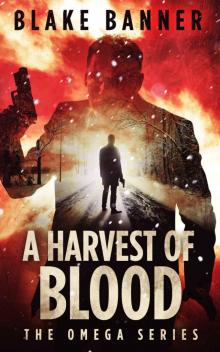 A Harvest of Blood - An Action Thriller Novel (Omega Series Book 5)
A Harvest of Blood - An Action Thriller Novel (Omega Series Book 5)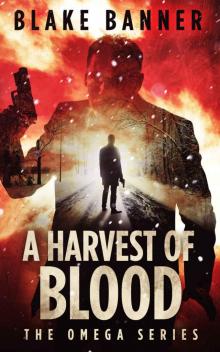 A Harvest of Blood - An Action Thriller Novel
A Harvest of Blood - An Action Thriller Novel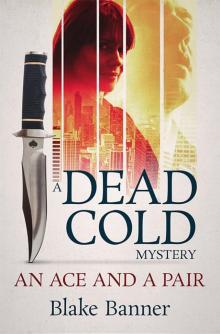 Ace and A Pair: A Dead Cold Mystery (Dead Cold Mysteries Book 1)
Ace and A Pair: A Dead Cold Mystery (Dead Cold Mysteries Book 1) Omega Series Box Set 3: Books 8-10
Omega Series Box Set 3: Books 8-10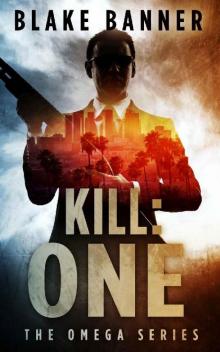 Kill One_An Action Thriller Novel
Kill One_An Action Thriller Novel The Storm
The Storm Double Edged Blade
Double Edged Blade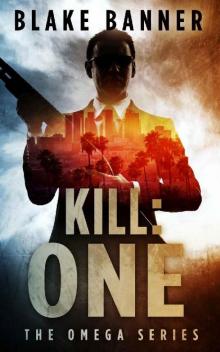 Kill: One - An Action Thriller Novel (Omega Series Book 7)
Kill: One - An Action Thriller Novel (Omega Series Book 7)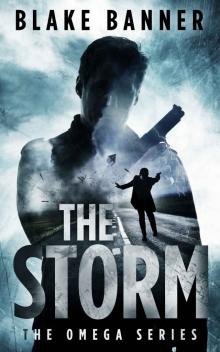 The Storm - An Action Thriller Novel (Omega Series Book 3)
The Storm - An Action Thriller Novel (Omega Series Book 3) Double Edged Blade - An Action Thriller Novel (Omega Series Book 2)
Double Edged Blade - An Action Thriller Novel (Omega Series Book 2)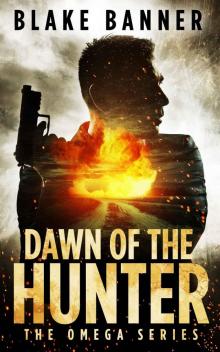 Dawn of the Hunter
Dawn of the Hunter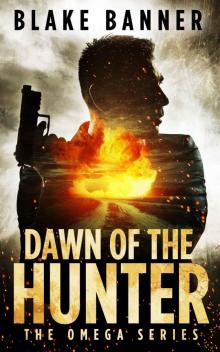 Dawn of the Hunter - An Action Thriller Novel (Omega Series Book 1)
Dawn of the Hunter - An Action Thriller Novel (Omega Series Book 1)